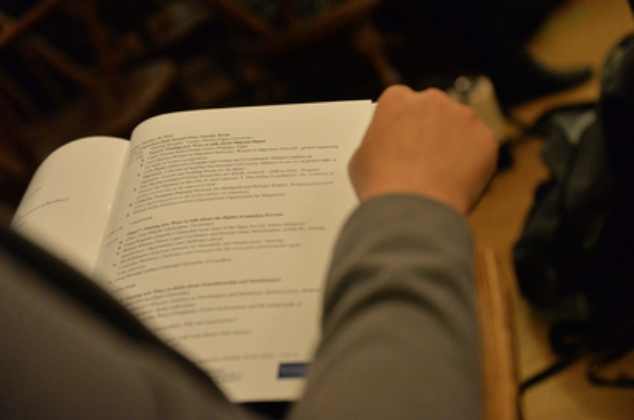
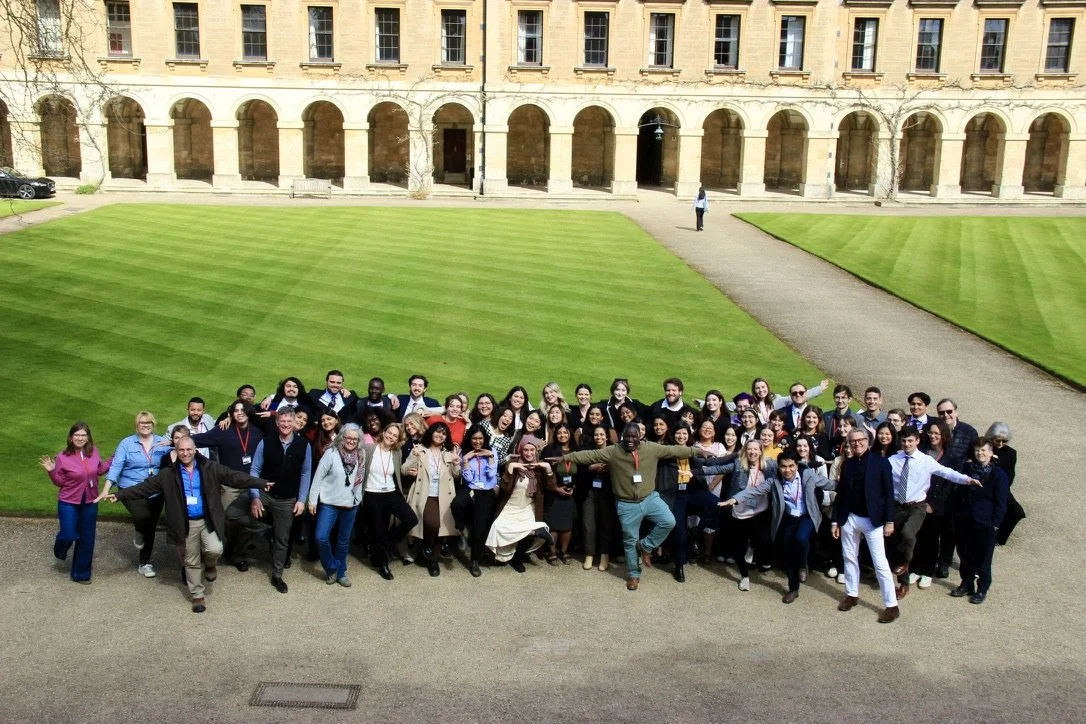






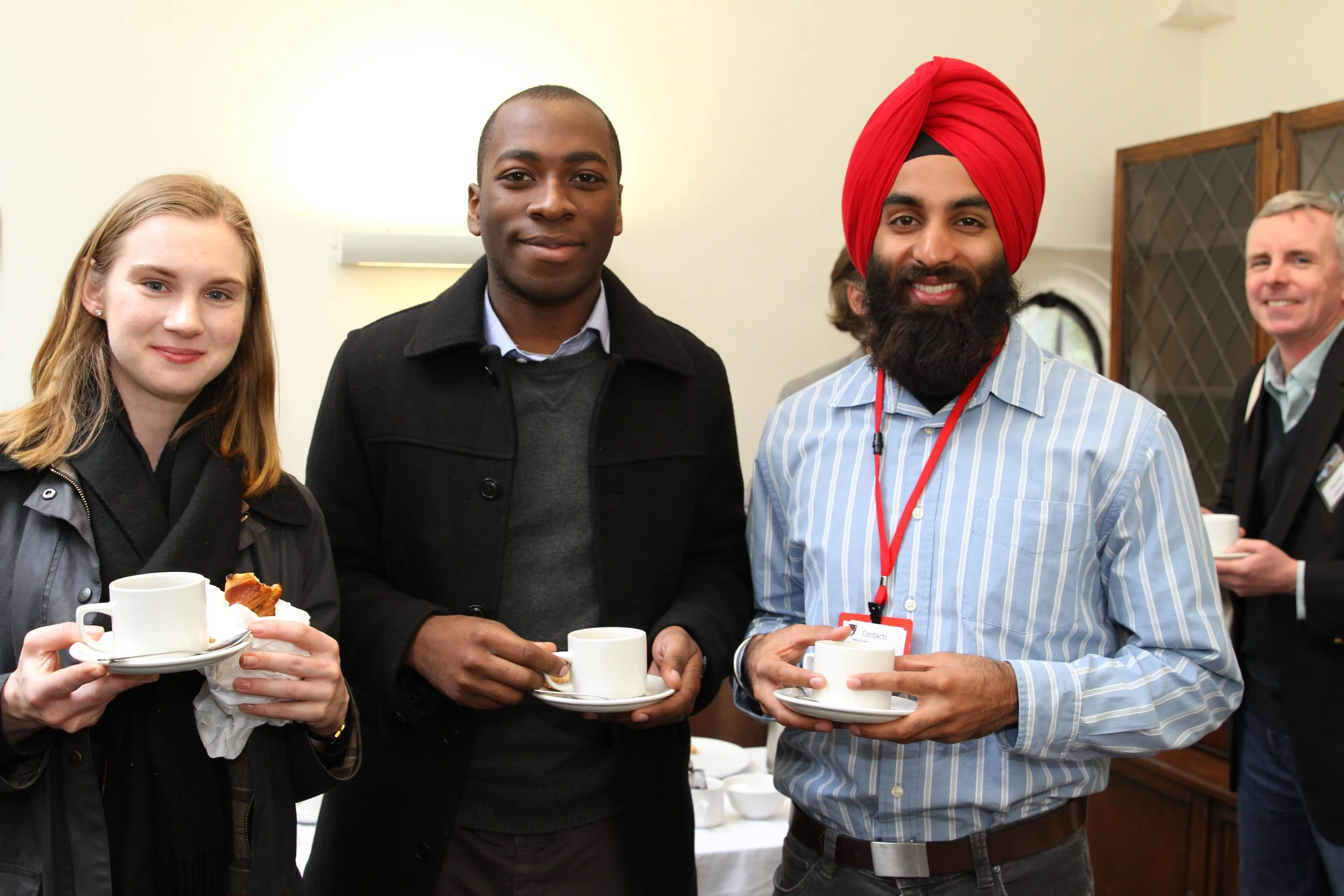

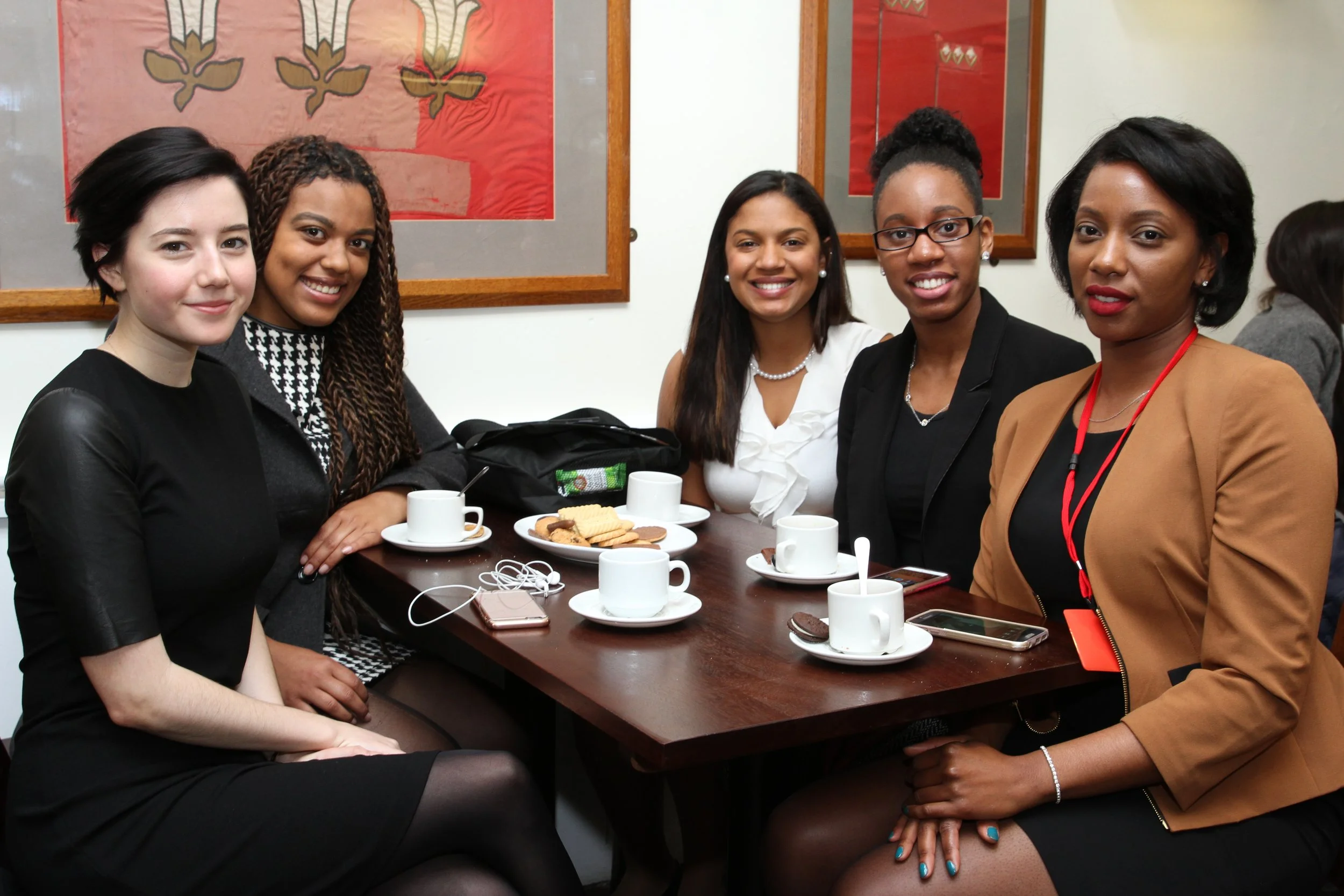
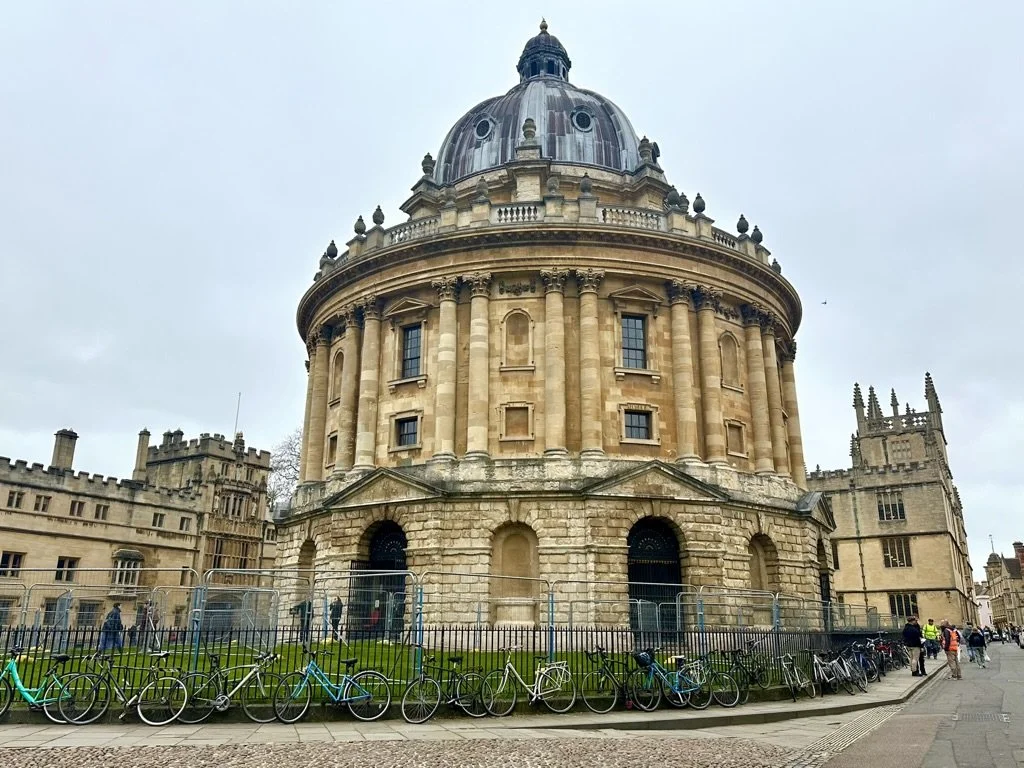
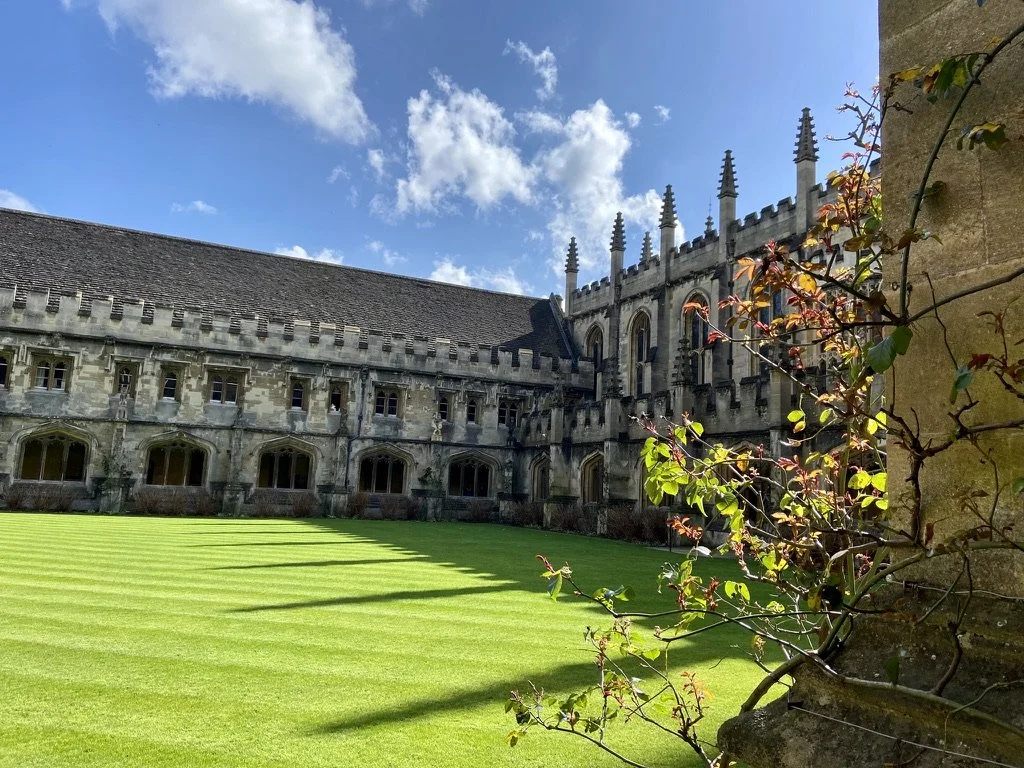
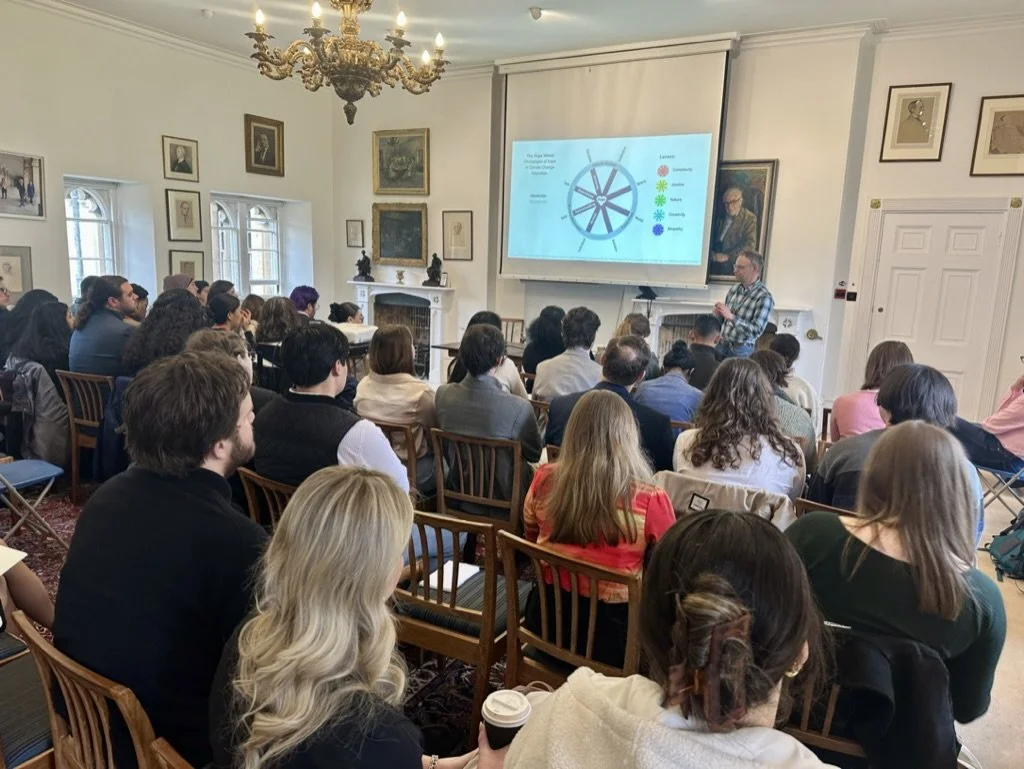
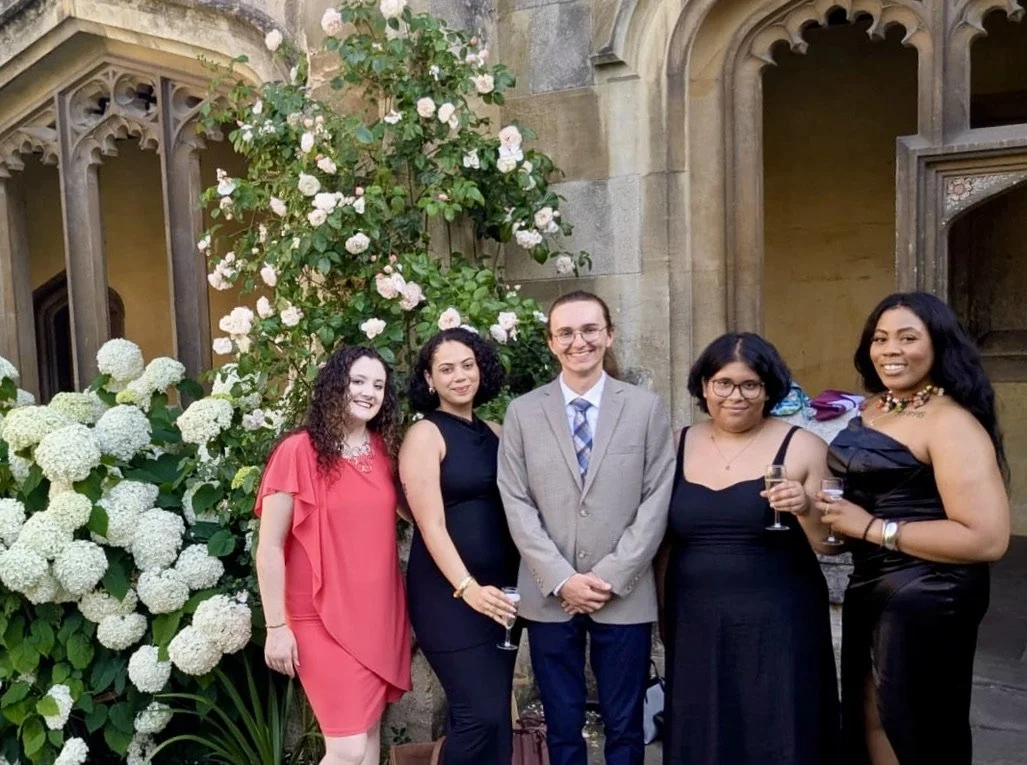
The Oxford Consortium for Human Rights hosts inter-active conferences on human rights for American students from thirty universities and community colleges across the United States, and students from our partner universities in South Korea, Kenya, and Brazil.
Our purpose is to offer a life changing experience of teaching and learning for intelligent and motivated young people who would never normally find a pathway to Oxford. These are often students from low income and first generation families who discover a new sense of personal validation and ambition in their commitment to human rights and human duties during our conferences in Oxford and the US.
Founded in 2012, we now have a thriving alumni of 1500 people.
Our Oxford University home is at Blackfriars Hall, where we are based in the Las Casas Institute for Social Justice.
Committed to Conversation and Debate
We are committed to understanding the particularity of diverse experience, the varied approaches to international legal instruments, and the impact of community action on global politics. Building a foundation for recognizing the complexity of such issues is essential as cultural, historical, and political contexts vary drastically throughout the world. Our work is enriched by the collaboration of scholars, practitioners, and student participants from a wide array of academic disciplines, local and international organizations, and life experience.
Upcoming Workshops
-
Sonoma State University, California, USA
Students will look at day human rights issues in the United States through the lens of immigration. In dialogue with community leaders and organizers, students will explore ethical implications and social impact of the ever-changing immigration enforcement policy. They will also have the opportunity to gain basic knowledge and skills about working collaboratively for community change.
-
Brasenose College, Oxford University, Oxford, UK
This conference examines two of humanity's greatest existential risks and explores how war and climate emergency impact people's human rights. Students will learn about the nature of war today and the legal framework that aims to limit itseff ects by protecting civilians, combatants, detainees and the environment. The conference will also examine the science of climate change and its impact on humanity and nature from intensifying weather hazards and the risk of tipping points in the earth system. It will then assess the progress being made in the two COPs of the UN Framework Convention on Climate Change, the UN Convention on Biodiversity, and in the emerging consensus around climate justice and the human right to "a clean, healthy and sustainable environment". Important connections between climate change and conflict will also be made. The protection of Nature and the emerging idea of the "rights of Nature" will be explored in analysis of both war and climate.
-
Magdalen College, Oxford University, Oxford, UK
This conference will explore the relationship between many new technologies emerging across human society and people's continuous demands for human rights. The course will examine how the impact of new technology is sometimes positive and enabling of human rights, sometimes negative and restrictive, and often ambivalent and uncertain. Students will study particular technological revolutions in communications, medicine, governance, surveillance, education, weapons, energy, and manufacturing to explore their implications for traditional human rights to health, privacy, free speech, free association, and the laws of war. More profoundly, the conference will explore how new technology is changing our experience of being human - ontology itself - as we live an increasingly hybrid life as computerized humanity.
-
Magdalen College, Oxford University, Oxford, UK
This new conference explores the right to health. It examines patterns of health and disease worldwide, and assesses the progress of the global movement for universal healthcare. Particular sessions address the major health challenges of infectious disease, epidemics, antibiotic resistance, childbirth, hunger, obesity, chronic diseases, and war. The conference also focuses on the health challenges of climate change and zoonotic disease, and new policies of One Health and Planetary Health. The theory and practice of health activism will be a constant theme of the course, which will draw on the expertise and experience of University of Oxford’s world- leading professors and researchers in global health.
What separates OCHR from other human rights programs?
Merging Theory and Practice
First and foremost, our unique approach of merging intellectual rigor, social engagement, and practical action produces an understanding of human rights that accounts for diverse intellectual traditions, the constraints of implementation in wide-ranging socio-political contexts, and the importance of community action. Our workshops put students, scholars, and practitioners of human rights in dialogue in order to create a more holistic understanding of human rights praxis.
Building Community
What makes the experience of attending the Oxford Consortium workshops so meaningful is the resulting community of participating students, scholars, and practitioners from different disciplines, backgrounds, regions, and countries around the world. There is a special bond among OCHR alumni. This learning community of friends and colleagues continues to collaborate on human rights projects and emerging issues of global ethics long after the workshops have concluded. Alumni still identify their engagement in the OCHR workshops as one of the most transformative experiences of their lives.
Creating Opportunity
Attending an OCHR workshop is for many the first step on their path to global engagement. Regardless of their place of origin or financial means, the Oxford Consortium welcomes students from all backgrounds. We concentrate on providing opportunities for students who may not otherwise have these resources available. We encourage institutional support from the participant’s home university so that even those from the most modest backgrounds have an opportunity to meet the world’s leading scholars and practitioners, and to become part of the same community of practice. Many of our alumni have been inspired by this program to pursue and receive noted national and global fellowships and scholarships for graduate study to continue their pursuit of human rights and global ethics.





